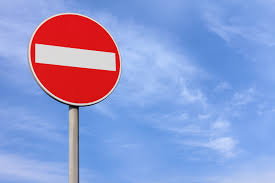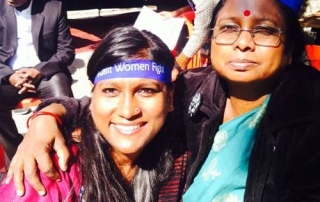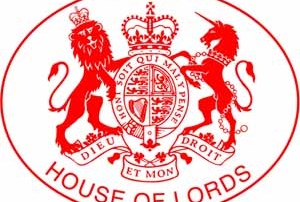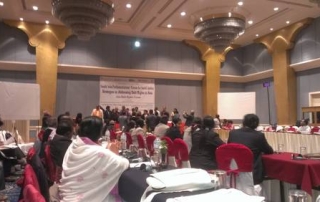Dalit leaders awarded for their work defending human rights
US urged to actively support IDSN’s application for UN consultative status
Leading Dalit activists arrested for protesting massive cuts in budgets meant for Dalits
Human Rights Watch and Amnesty International’s 2015 reports raise serious concern over caste discrimination
India’s blocking of IDSN’s UN consultative status continues
World Bank President and UN Secretary-General: Ending India’s caste-based exclusion is key to shared prosperity
Speaking at the Indian Council of World Affairs UN Secretary-General Ban Ki-Moon stressed the need for inclusive growth for shared prosperity saying that, “millions of Dalits, Tribals and others still face discrimination, especially the women and girls.” On a visit to Gujarat the World Bank President Jim Yong Kim, similarly cautioned that while India was an accelerating economy, “Indian society has an enduring exclusion that is based, among other things, on caste identities. This bias can impede shared prosperity, serving as a basis for discrimination in many spheres, including in employment and other markets, as well as in public services.”
Dalit women fight for their rights with marches and mass events in Nepal and India
Dalit women from Nepal, India and Bangladesh joined hands to assert their rights at a rally in Kathmandu, at the fringes of the people’s SAARC meeting. Hundreds of Dalit women from across Nepal gathered at the FEDO National Dalit Women conference, to put Dalit women’s rights on the agenda and In India several long marches and mass gatherings of Dalit women took place throughout November and December.
Caste discrimination debated in the UK House of Lords
The UK Government’s action on tackling caste discrimination in India was the topic of a debate on the 26th November in the UK House of Lords. Many Lords spoke out passionately against caste-based discrimination and asked that the UK Government in its relations with India take-up fighting caste-based discrimination.
South Asian Parliamentarians meet to discuss strategies for ending caste discrimination
Thirty-one parliamentarians from India, Nepal, Pakistan and Bangladesh gathered for a meeting of the Asian Parliamentarians’ Forum on Dalit Concerns in Kathmandu, at the fringes of the 2014 SAARC meeting. The former Prime Minister of Nepal, Baburam Bhatttarai, delivered a remarkable keynote speech, calling for an international framework and a regional thematic approach to eliminate caste discrimination, and cooperation between South Asian parliamentarians for a common agenda.






